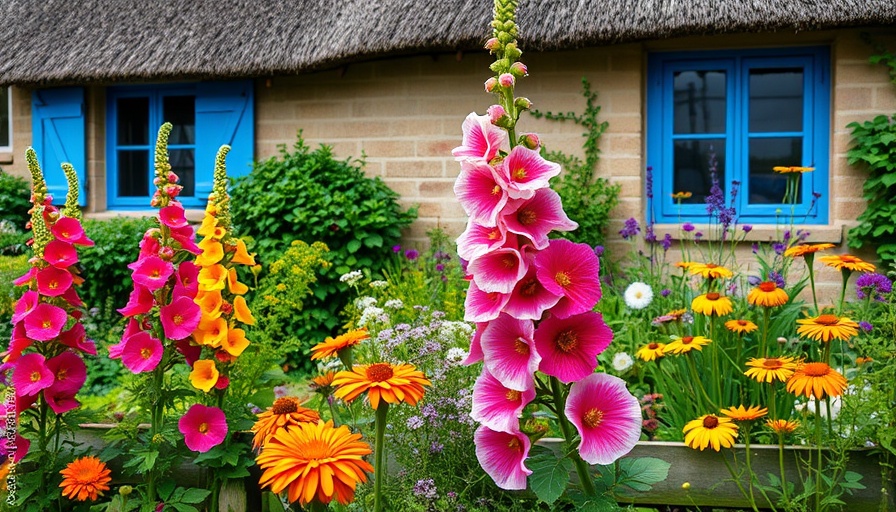
Creating Peace Through Gardening: The Essence of Yutori
Gardening is more than just planting seeds and watering plants; it's an art form and a profoundly personal journey of self-discovery. The practice of gardening allows individuals to carve out a sanctuary where they can escape the chaotic pace of life. This tranquility is beautifully encapsulated in the concept of Yutori, a Japanese principle that emphasizes creating 'room' or 'margin' to breathe and rejuvenate. As gardens bloom and flourish, they mirror our internal landscapes, teaching us to slow down and find joy in the simplicity of nature.
Finding Solace in Nature
For over 40 years, countless individuals have turned to gardening as a form of therapy. The tactile experience of nurturing plants offers an unparalleled calmness—where the mind can rest and reflect. Studies highlight the numerous health benefits of gardening, including reduced stress levels, increased vitamin D, and improved mental clarity. Engaging with nature fosters a meditative state, connecting us with our roots and the present moment.
A Personal Journey: The Birth of a Gardener
Reflecting back on her journey as a gardener, Emily shares a moving account that began during a tumultuous patch of her life. At that time, she discovered a humble home in South San Francisco, a city with a complicated industrial backdrop. It was her chance encounter with an elderly gardener, Stan, that ignited her passion and helped her see the potential in her scruffy patch of backyard. His words about gardens as places of beauty and solace became a guiding mantra in her practice of Yutori.
The Science Behind Gardening and Mental Health
Research continuously supports the therapeutic effects of gardening, revealing that time spent in green spaces can alleviate symptoms of anxiety and depression. In an era where mental health is often sidelined, horticultural therapy emerges as a beacon of hope. The act of physically engaging with the earth provides not just stripes of green but strips away the heaviness of urban life, granting us a clearer perspective.
Transforming Challenges into Opportunities
Gardening also underscores resilience. It teaches us that setbacks—like pests or unpredictable weather—are part of the process. Each challenge becomes a lesson in patience and adaptability. Engaging with the cycles of nature—planting, nurturing, harvesting—offers gardeners a sense of accomplishment that bridges the gap between personal struggles and broader life lessons.
Lessons from Yutori: Slowing Down in a Fast-Paced World
Incorporating Yutori into our daily lives can yield not only a flourishing garden but also a more fulfilling existence. It serves as a reminder to take a step back, breathe, and appreciate the present. By embracing the art of gardening and the philosophy behind Yutori, we encourage a culture of mindfulness that can be transformative for our mental well-being.
Practical Tips for Aspiring Gardeners
Whether you reside in an urban apartment or a sprawling suburb, anyone can cultivate their little piece of paradise. Start small by selecting a few easy-to-maintain plants and dedicate time each week to connect with them. Through consistent care and observation, you may find that your garden rapidly evolves, paralleling your own personal growth and challenges.
The Human Experience Behind Gardening
The act of gardening is interwoven with the realities of life. The stories, smells, and sensations tie together our shared experiences. It allows us to cultivate not only plants but also connections, memories, and stories. Emily’s gift for hosting gatherings in her garden serves as a powerful reminder of how gardens can foster community, where people come together, strengthen relationships, and share their narratives.
In sharing her own journey, Emily invites us all to explore their inner gardener—to find comfort, learn from nature's wisdom, and embrace our personal growth.
As we contemplate the role of gardening in our lives, take a moment to consider how you may incorporate Yutori into your daily routine. Engage in that quiet stillness, and let the garden help you cultivate both plants and peace.
 Add Row
Add Row  Add
Add 




Write A Comment